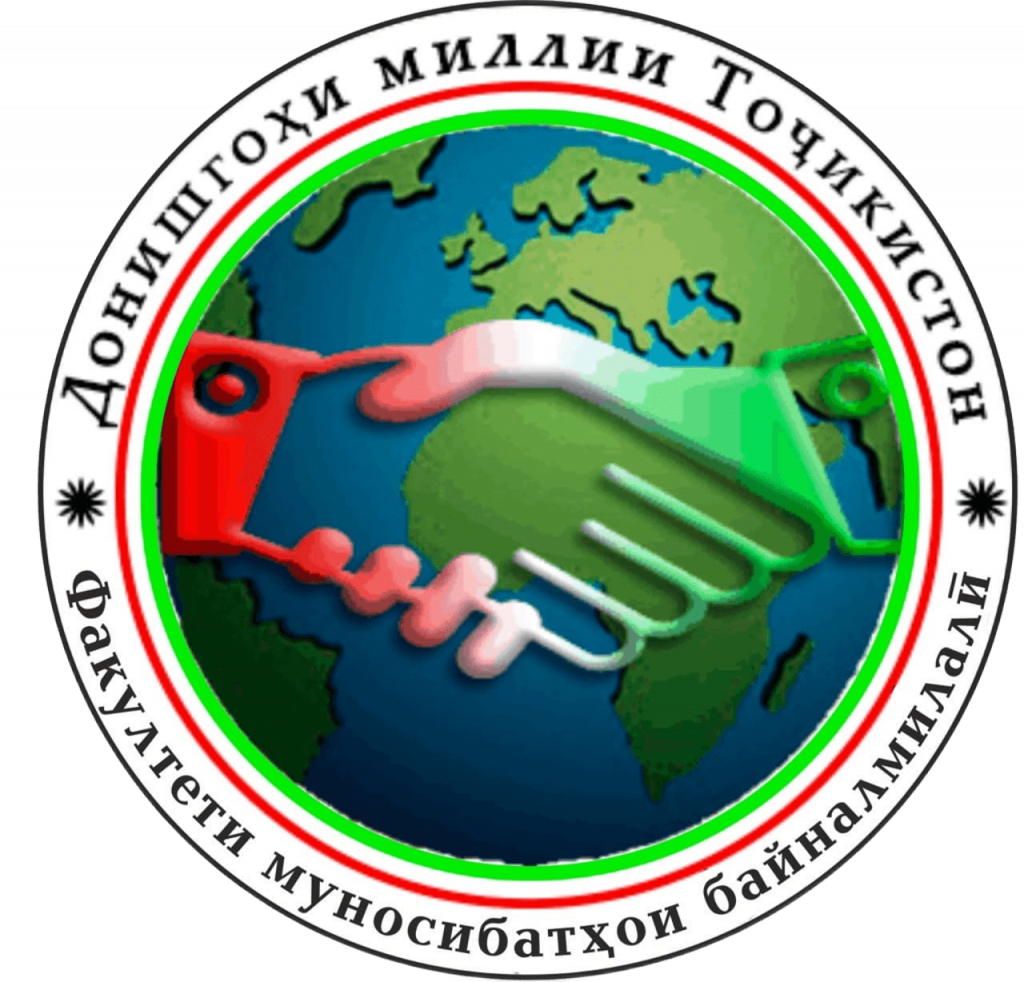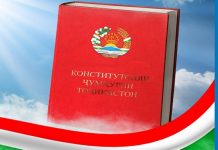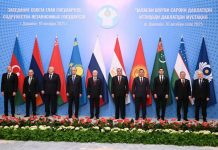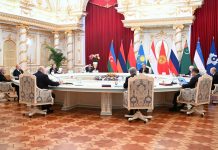Independence is proof of the existence of a full-fledged and sovereign state of Tajikistan in the world community, which independently pursues its own system of statehood, domestic and foreign policies, economic, social and cultural policies. Emomali RahmonOn September 9, 1991, at an extraordinary session of the Supreme Council of the Republic, a law declaring state independence was adopted. Thus, the thousand-year dream of the Tajik people was realized and a new stage in the development of national statehood began. The Republic of Tajikistan exists on the political map of the modern world as a sovereign and independent state with all the signs and foundations of statehood – a common language, territory and culture, a people with a universal civilization, state symbols that are a source of pride in the patriotism of each of us. At the international level, Tajikistan, as a full-fledged entity, enjoys special influence and prestige; it is recognized by more than 190 countries of the world, diplomatic relations have been established with 180 countries of the international community.
The Republic of Tajikistan has been a member of the United Nations since 1992, has diplomatic missions and consulates in 30 foreign countries, and there are diplomatic missions of 23 foreign countries and more than 20 specialized UN agencies, international organizations and international financial institutions in the country.
It follows that Tajikistan today is a completely independent state and independently determines the path of development and direction of its domestic and foreign policy. However, in the context of globalization, problems have emerged that threaten the sovereignty of the state and its independence. In modern conditions, in connection with globalization trends, new dangers and threats have arisen for national statehood.To define the sovereignty of a state and use this concept in legal practice, it is necessary to understand the concept of a state. In a general sense, a state is a type of organization that has a special administrative apparatus, makes laws that are binding on all people, and has the highest political power throughout the country.
The main goal of the state is to manage society. The effectiveness of public administration depends, first of all, on the quality of domestic and foreign policy. In order for the internal and external affairs of the state to be independent, sovereignty is necessary, which acts as a guarantee of the state’s immunity from the influence of other countries. Independence is usually understood as the supremacy of state power within the country itself and its independence from external influences. Sovereignty is the quality in which a state carries out its tasks independently and independently of any other country both on its territory and abroad, as well as in the international arena.
The sovereignty and independence of the state and political power is manifested in their activities, independence from the political organizations of this state and from foreign states and international organizations.State independence consists of such fundamental methods as the unity of territory and borders, the inviolability of state borders and non-interference in internal affairs. If any state or other external force violates the border of another state or forces it to make a decision that is not in accordance with the national interests of that state and its people, then this is a violation of the sovereignty of the state. So, this indicates the weakness of the state, its inability to ensure its sovereignty and national-state interests.
The UN Charter, adopted by its member states in San Francisco on June 26, 1945, provides that “all Members of the United Nations shall refrain in their international relations from the threat or use of force against the territorial integrity and political independence of any state or to refrain from any -in any other way inconsistent with the purposes of the UN.” However, given the pace of globalization, modern states are entering into interstate associations, which raises the question of possible restrictions on state sovereignty.
The events of recent years in the world have led to serious changes in the institution of the state. The world has experienced a financial and economic crisis, a human crisis, which is manifested in coups, rallies, and human casualties. All these events became manifestations of the crisis of the institution of the state and state sovereignty. On the other hand, globalization threatens the foundations of statehood and its sovereignty. All this forces us to rethink the role of the state in the modern world.With increasing globalization, states are increasingly faced with foreign interference and pressure in their domestic and foreign policies. Today, most states are “officially” sovereign and face serious pressure from other states, military blocs, political and international organizations. With the development of globalization processes, the sphere of action of states is narrowing. In foreign policy, it is almost impossible to create interstate relations without the participation of third countries and international organizations. It is impossible to imagine a conflict between two states without the intervention of a third party.
Domestic policy issues go beyond the domestic framework and are taken to the international level.There is also a change in the understanding of the essence of state sovereignty in the economic sphere. The sovereignty of the state in the field of economics consists in pursuing a sovereign and independent economic policy. The increasing dependence of the national economy contributes to the fact that the economies of states are closely interconnected and become interdependent. The development of the world economy in the context of globalization opens up national markets for private companies at the transnational level. New aspects of global economic relations – transnational companies – have come to the fore, and the importance of international organizations and companies has increased. The economy increasingly depends on the external situation, on oil prices, world currency exchange rates, indicators of world stock exchanges, etc.
States must come to terms with the fact that part of production is under the control of companies whose interests do not always coincide with the interests of the state, which is a limitation of state sovereignty. In modern conditions, state sovereignty is of great importance and is a definite guarantor of the existence of independent states. Another interference in the sovereignty of the state is the impact on the information space and ideology of its citizens in the context of the development of communication technologies and the formation of the global Internet, which includes a large wave of different and contradictory information. In this process, no state can deny access to it, since refusal of this process means refusal of the progress of the economic and social life of the state.
The process of globalization influences the formation of the moral education of the younger generation and is considered a threat to national security. Undoubtedly, the main danger of destruction of any nation and state is the weakening of the national ideology of its youth. Globalization is one of the main means of influencing consciousness, in particular, the forms of social consciousness of adolescents and young people, in particular morality, religion, and worldview, which determine the forms of consciousness of society and a person’s worldview. In other words, there is a struggle to usurp the ideology of every person, and superpower countries are brainwashing young people, imposing a system of statehood and way of life, and, imposing other people’s values, turning them into degenerates. Moreover, in the course of promoting “common values”, immoral and obscene norms are promoted as a sign of culture and human rights, which destroy the foundations of national societies.
According to the American political scientist J. Rosenau, “in the process of globalization, the destruction of existing national sovereignty and national borders leads to the emergence of a new form of anarchy.” “As a result of the weakening of the former central authority, the strengthening of transnational relations, the reduction of the importance of barriers between peoples and the strengthening of everything that easily crosses state borders.” As a result of the use of force and violence in international relations, the confrontation between global and regional powers in protecting their interests, the actual disappearance of the state system of a number of countries under the pressure of foreign forces and elements, the growing expansion of terrorism and extremism, the state of international law has greatly weakened, and the independence of states and nations became vulnerable.
We can see examples and consequences of such a situation in Syria, Iraq, Libya, Yemen and Afghanistan.Thus, the process of globalization affects the sovereignty of the state in both domestic and foreign policy and causes significant changes in the development of the state. In the context of globalization, the issue of possible restrictions on state sovereignty becomes relevant for Tajikistan, which is actively involved in the process of shaping foreign policy and the national economy. In modern conditions, with the increasing influence of factors influencing politics, economics, social life and the ideology of society, the importance of independence for the preservation of language, historical memory, national identity and national culture is extremely important, and the future of the nation and the very existence of the Tajik state can only be stable under political independence.
At the same time, one of the main factors in protecting independence is understanding its significance, studying the historical path traversed by the Tajik people to achieve independence, teaching children and youth the great cultural, literary and scientific heritage of the Tajik people to form national self-knowledge and a sense of patriotism. As the Founder of peace and national unity- Leader of the nation, President of the Republic of Tajikistan, His Excellency Emomali Rahmon noted: “In the context of globalization, expanding geopolitical competition, escalation of dangerous manifestations of extremism and terrorism, and other global problems, a thorough study of philosophical, legal, social, political, moral and spiritual views is the need of the time. The study of the material and intangible culture of a nation should be a priority area of scientific research.” Therefore, we must unite around the Leader of the Nation and act together to develop national statehood and protect independence.
Sharipov Amriddin, candidate of historical sciences, Associate Professor, Head of the Department of International Relations
Saidzoda Halim Aziz, Ph.D., Professor of the University Department of English




